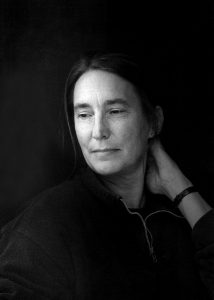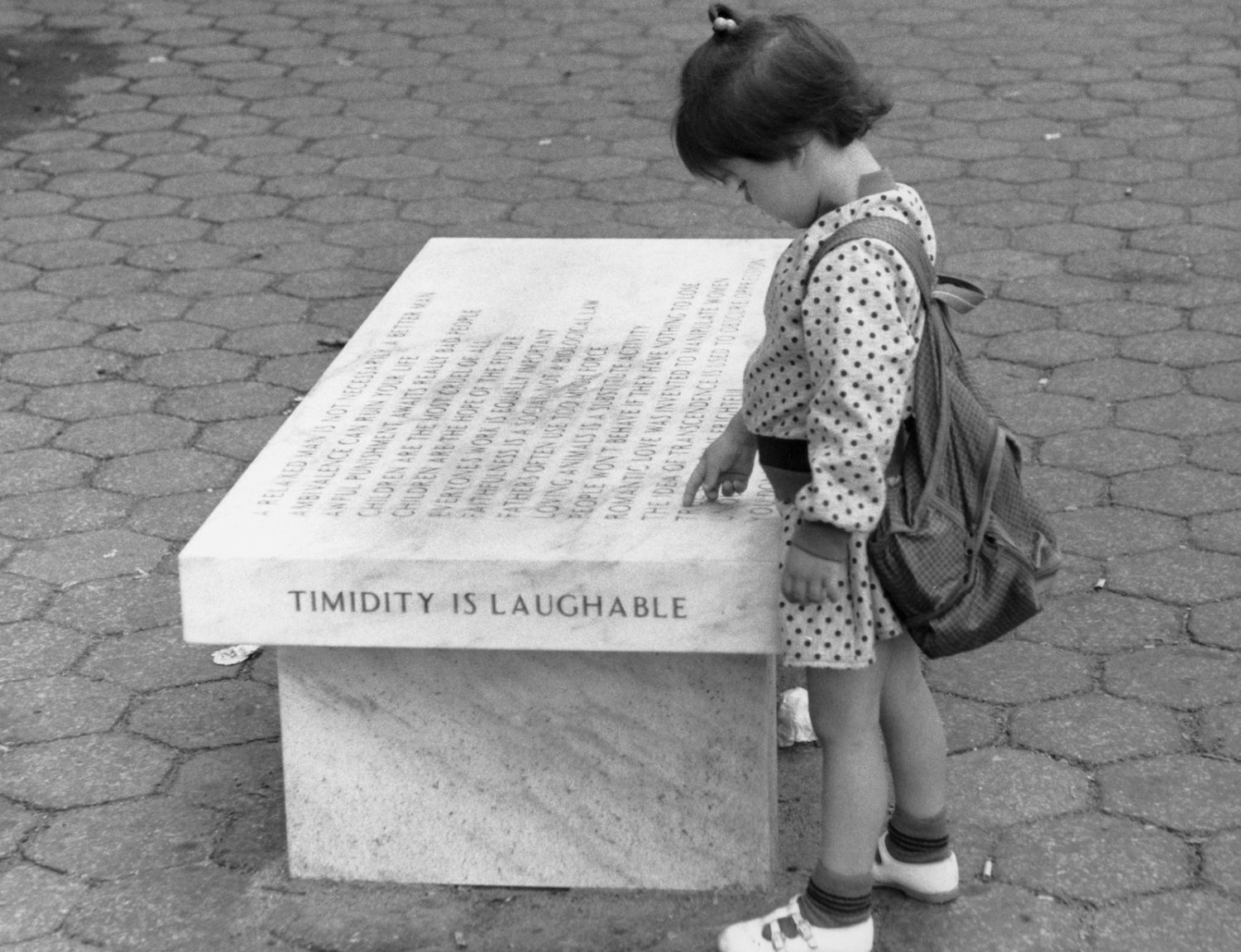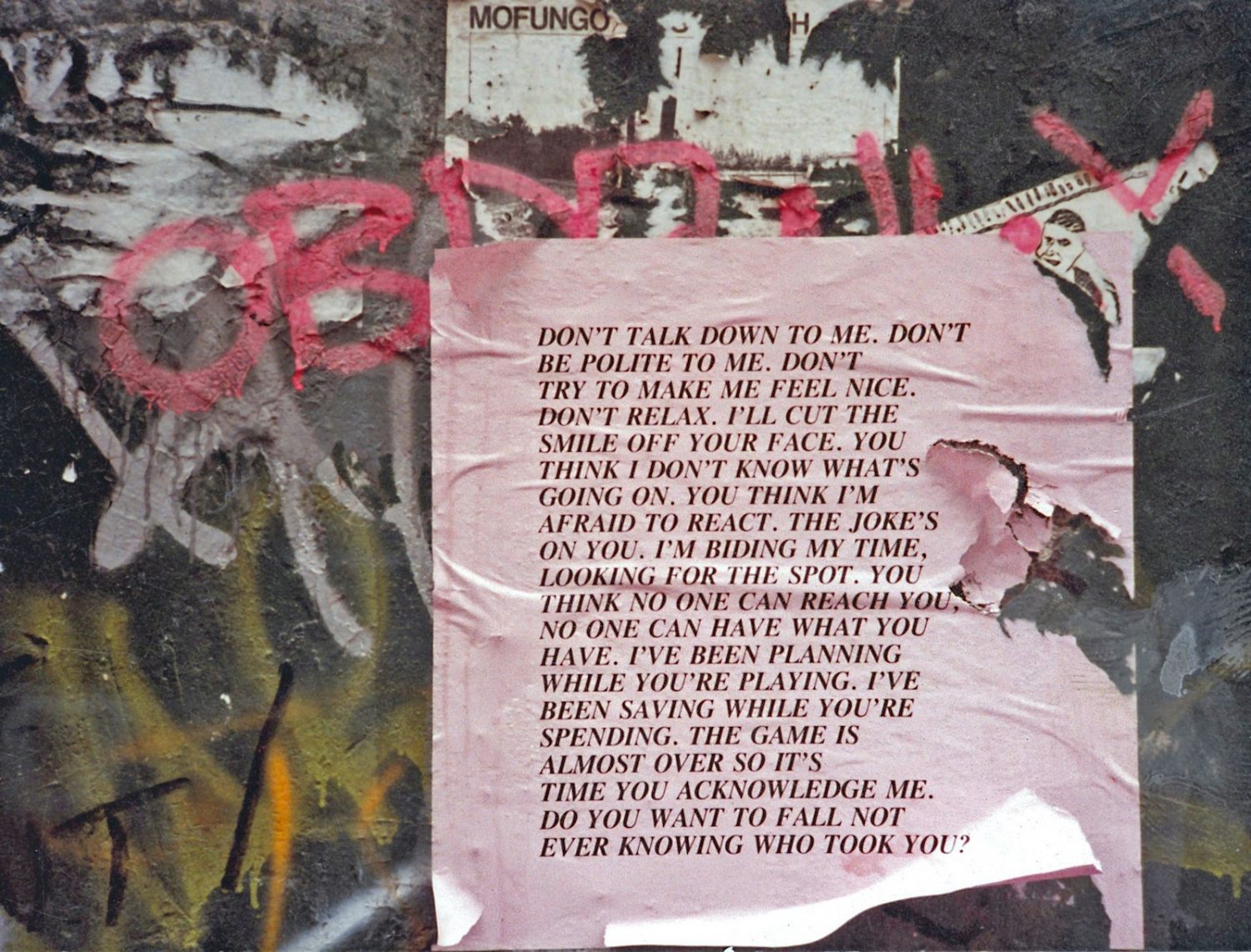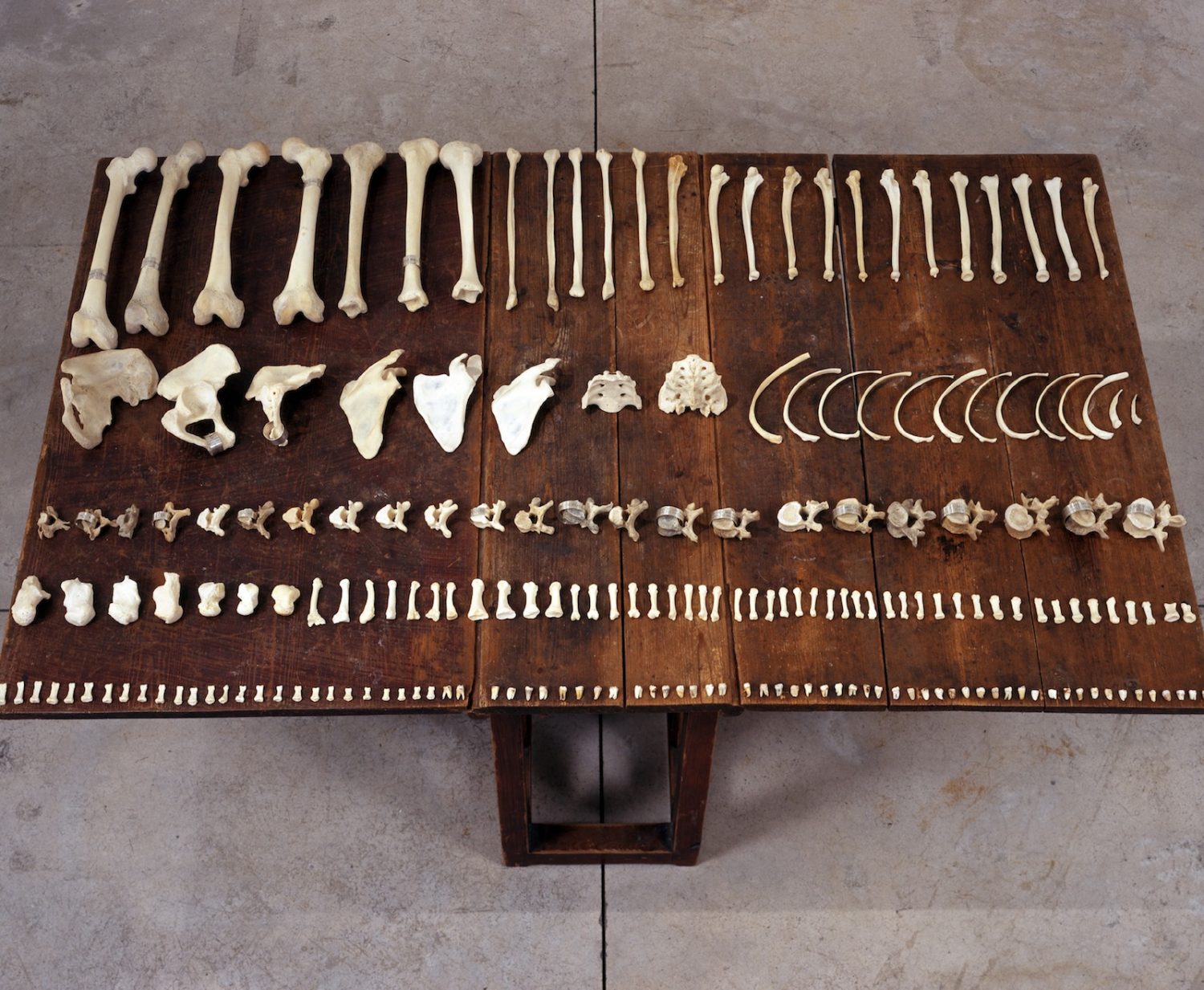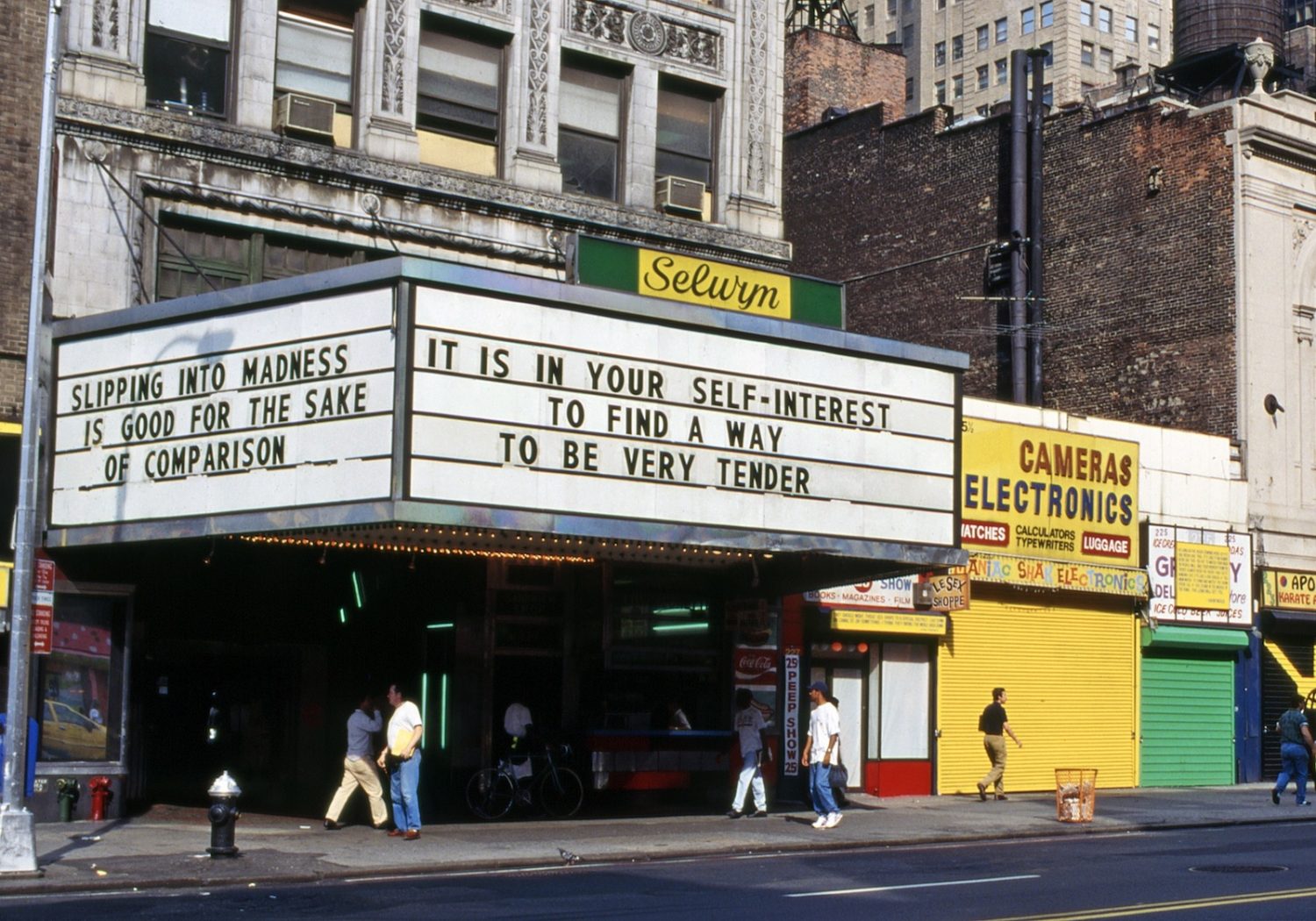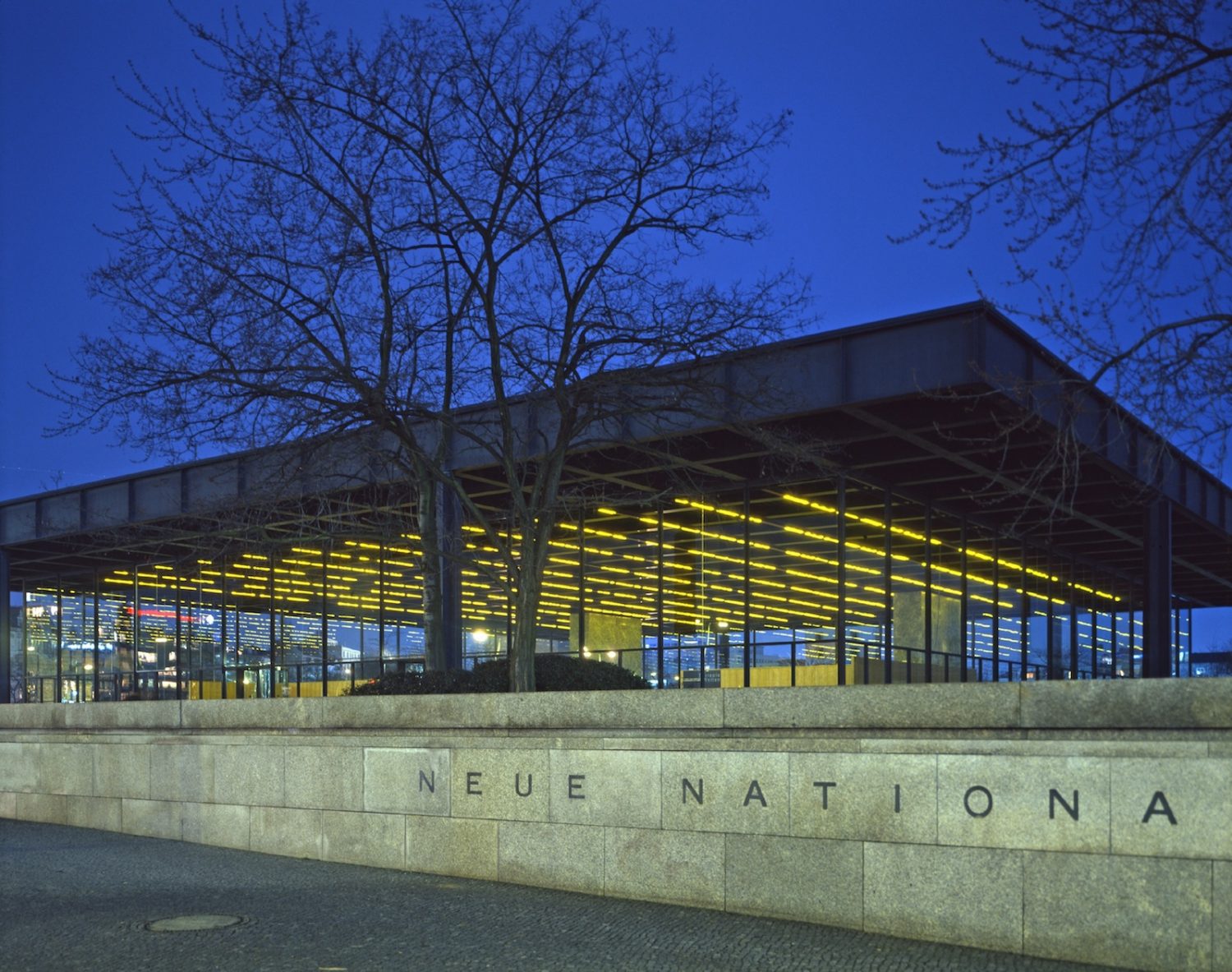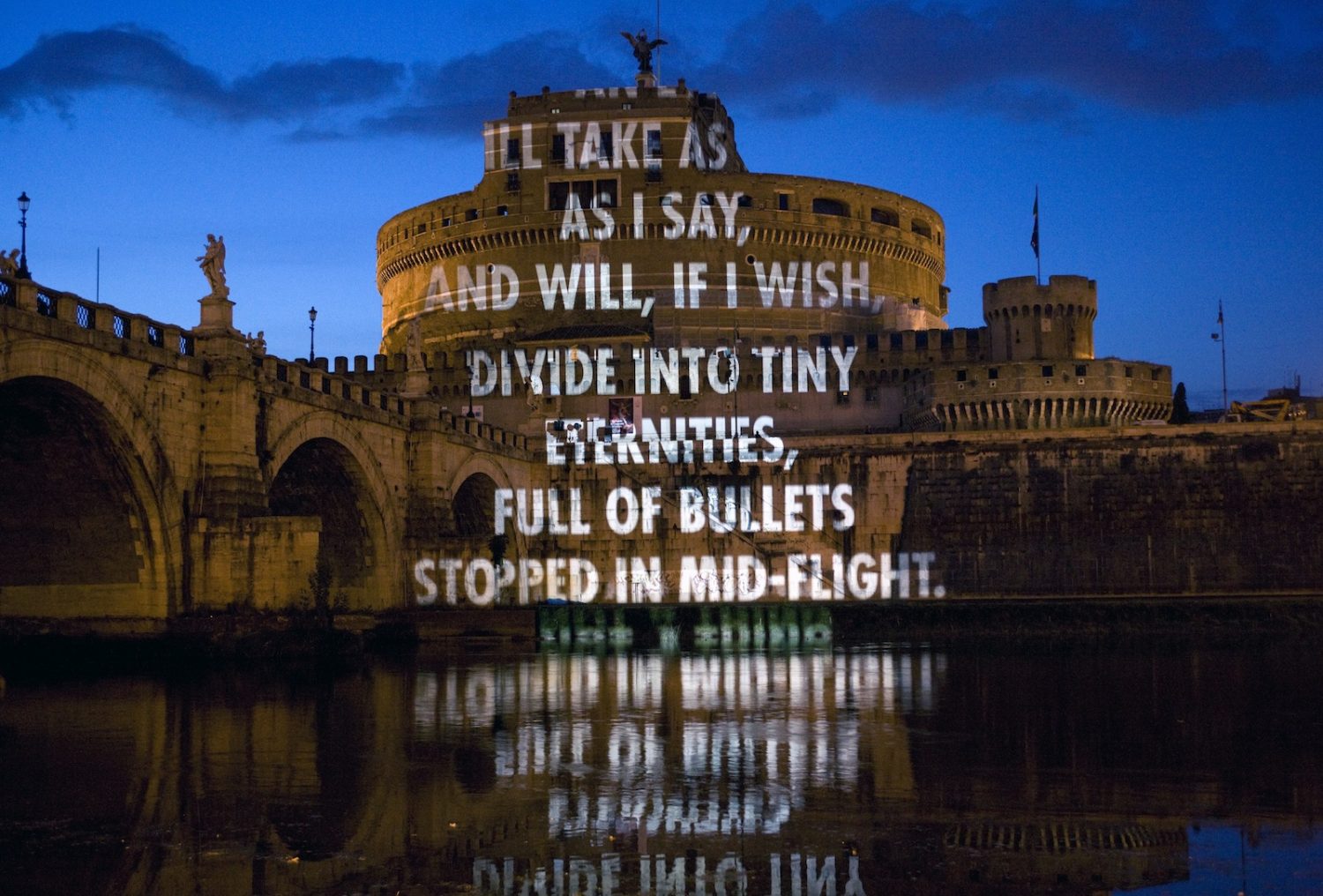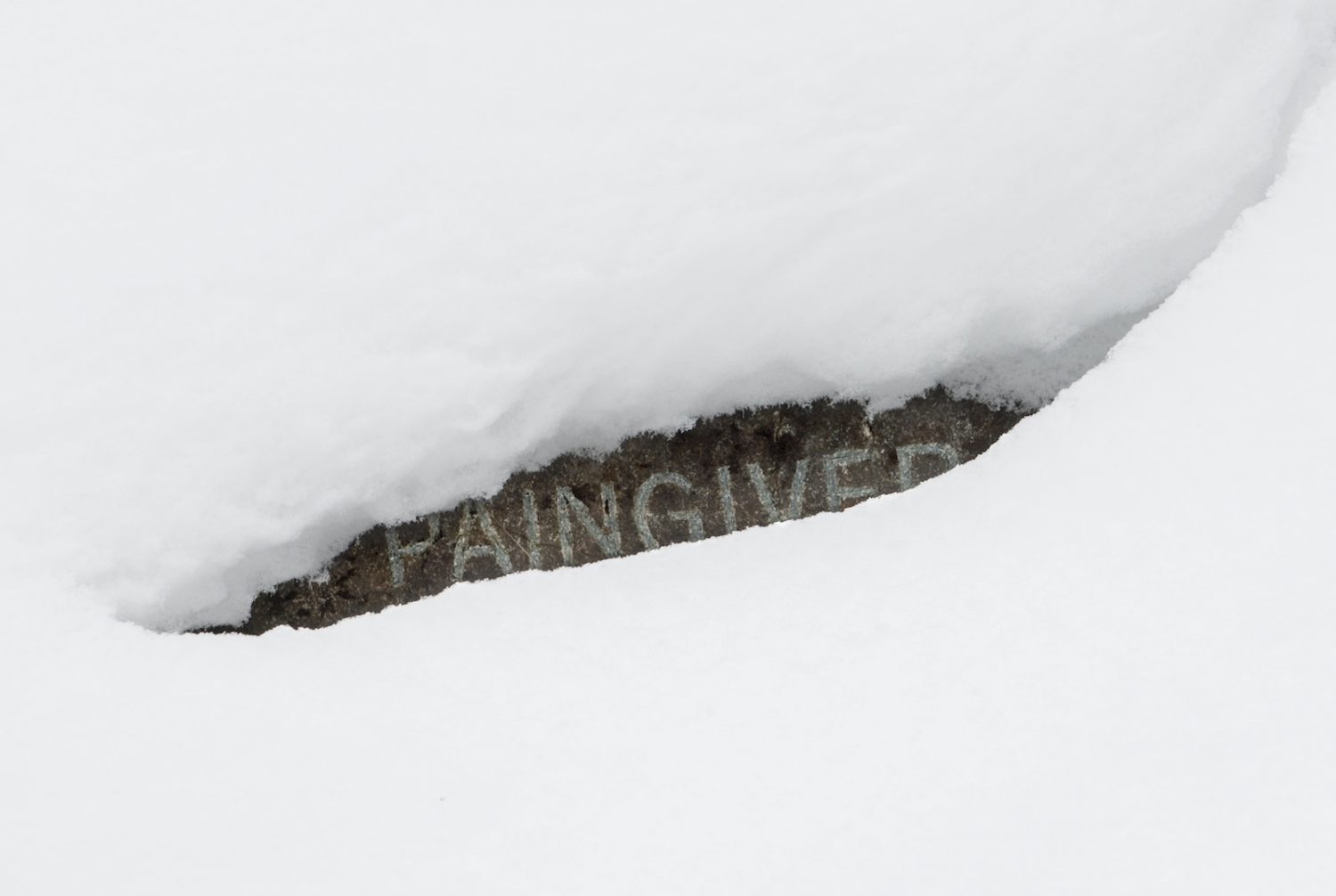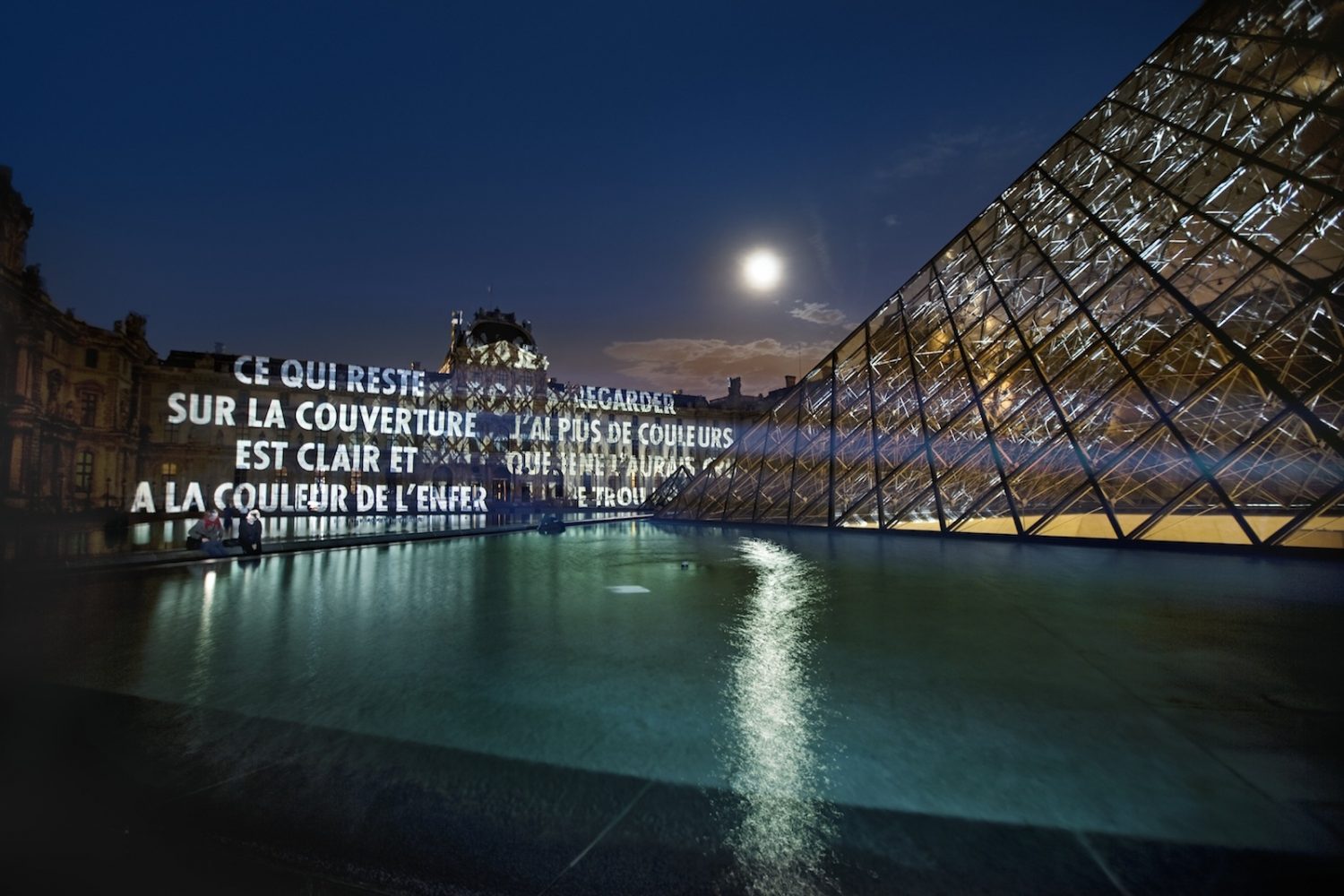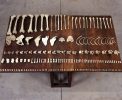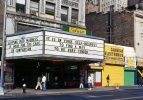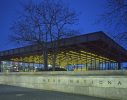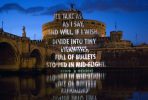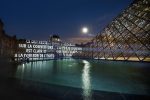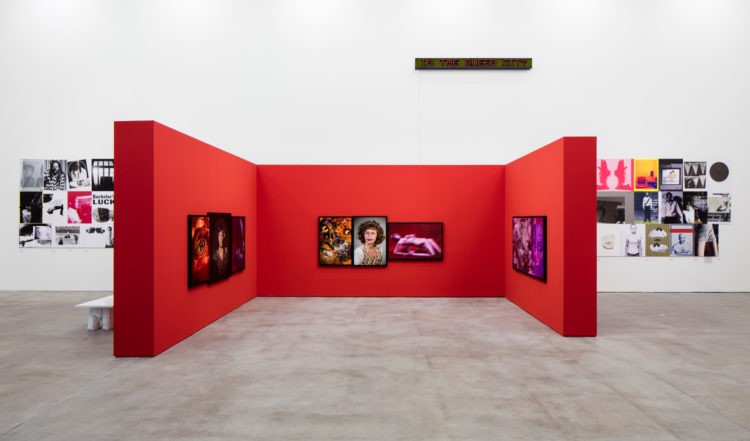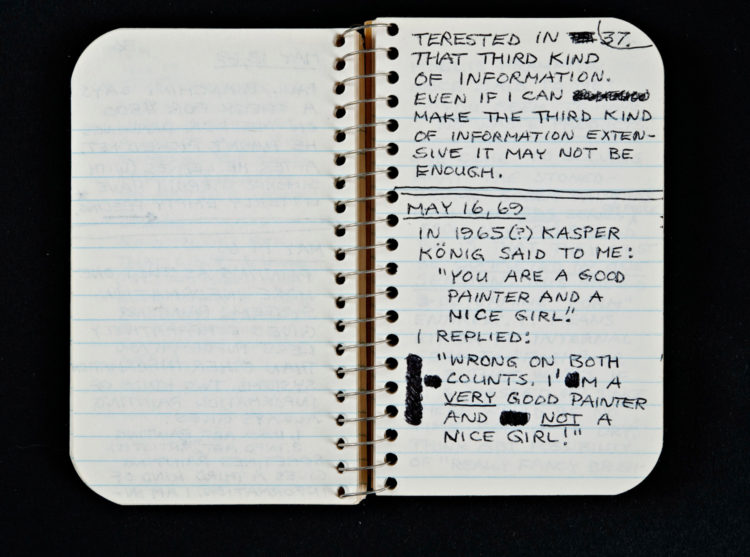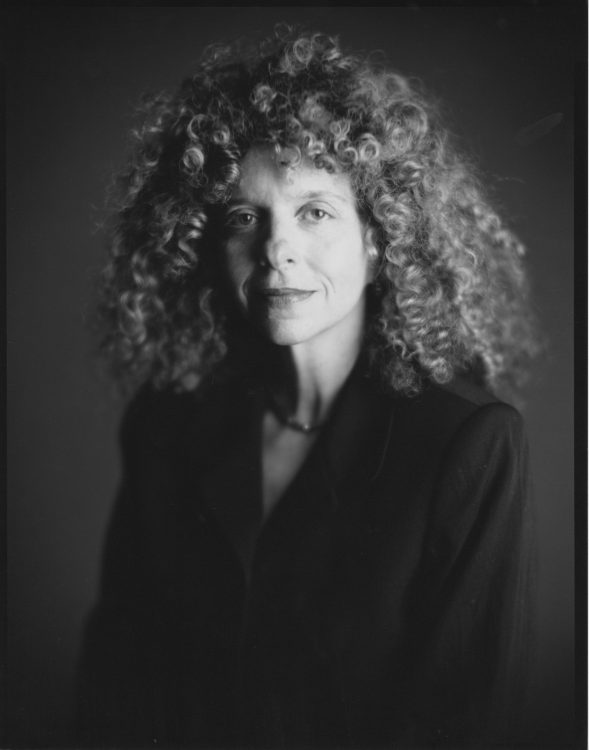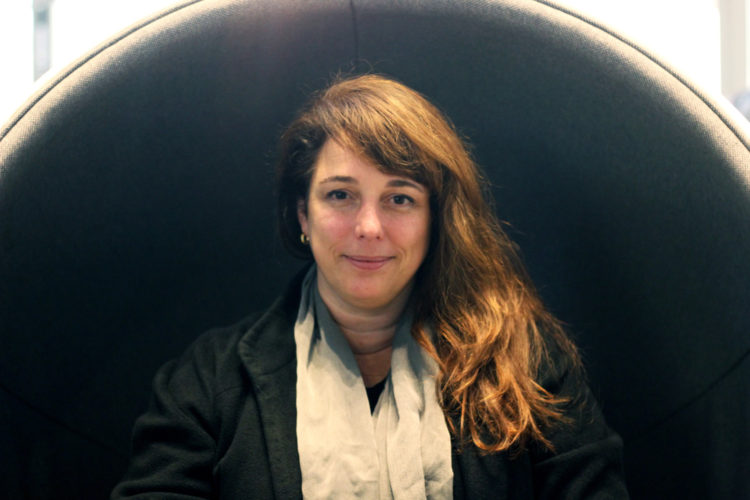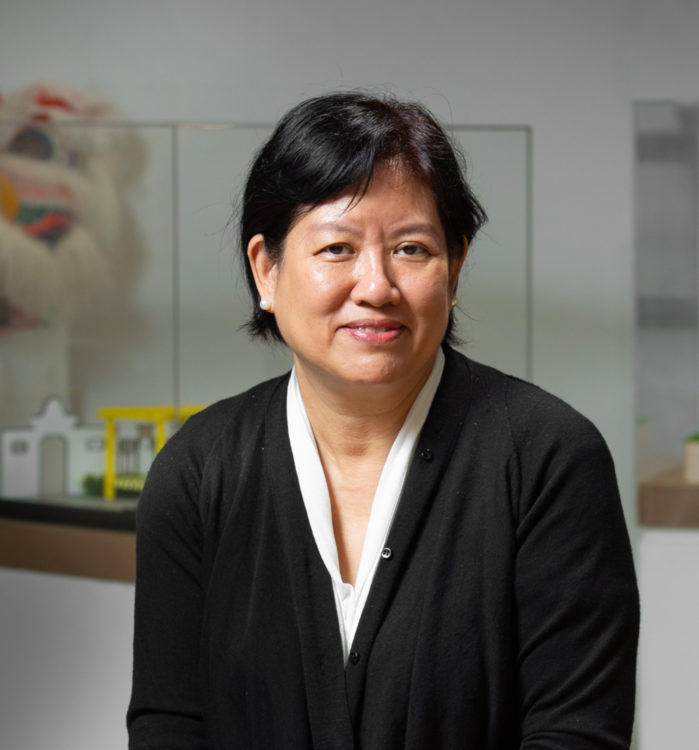Jenny Holzer
Jenny Holzer : Oh, exh. cat., Paris, Réunion des musées nationaux, 2001
→Schneider E. (ed.), Jenny Holzer: Truth Before Power, exh. cat., Bregenz/Cologne, Kunsthaus Bregenz/Walther König, 2004
→Joselit D., Simon J., Saleci R. (ed.), Jenny Holzer (1998), London, Phaidon, 2010
Jenny Holzer: Lustmord, Contemporary Art Museum, Houston, 1997
→Jenny Holzer : Oh, CAPC – Musée d’Art Contemporain de Bordeaux, 2001
→Jenny Holzer: Protect Protect, Whitney Museum of American Art, New York, 12 March–31 May 2009
American visual artist.
After studying drawing, painting, and printmaking, first at Duke University and then at the University of Chicago and Ohio University, Jenny Holzer received a Master of Fine Arts degree from the Rhode Island School of Design. After being accepted into the Whitney Museum of American Art Independent Study Program, she moved to New York in 1977 and worked as a phototypesetter at Daniel Shapiro’s Old Typosopher design studio. She then gave up her abstract pictorial work, which was influenced by that of Mark Rothko and Morris Louis, and started using language to question representation. For her first series, Truisms (1977–1979), she used advertising media or public spaces to spell out sayings in capital letters, such as “private property created crime” and “everyone’s work is equally important.”
Inspired by American street performers, minimal and conceptual art, the discoveries of female authorship, and the body art of Yvonne Rainer, she sees herself as an agitator. Referring back to the Russian constructivists, she ascribes a utilitarian function to art and uses the media culture in which she is steeped to her own ends. Her second series, Inflammatory Essays (1979–1982), consists of texts inspired by political and philosophical writers (including Emma Goldman, Lenin, and Rosa Luxemburg), which were originally printed on brightly coloured paper and pasted to public walls. She has also carved texts on granite benches and sarcophagi, presented them on electronic signs, and projected them onto public buildings.
She has created memorials against racism, against the atrocities of the Second World War, or that deal with the thoughts of people about death, at the moment of the battle again the AIDS pandemic (Laments, Dia Art Foundation, New York, 1989). In 1990, for the Venice Biennale, she exhibited a polemical work on the ambivalent ties and fears that bind mothers and their children (Mother and Child), for which she was awarded the Golden Lion. By shining a light on political and social stereotypes, she attempts to incite thought about fundamental issues, using communication methods designed to reach the largest possible public. In the 1990s, she began drawing from her personal history and the intimate relationship between body and language, moving from ideological messages and aphorisms towards meditations on the human condition. In part, she has explored these themes through the words of others, incorporating the writing of renowned poets into her work and drawing on government documents to highlight the effects of U.S. military activities in Afghanistan and Iraq. A retrospective of her work was held at the Guggenheim Museum in New York in 2009.
© Éditions des femmes – Antoinette Fouque, 2013
© Archives of Women Artists, Research and Exhibitions, 2017



